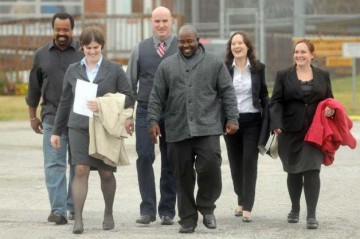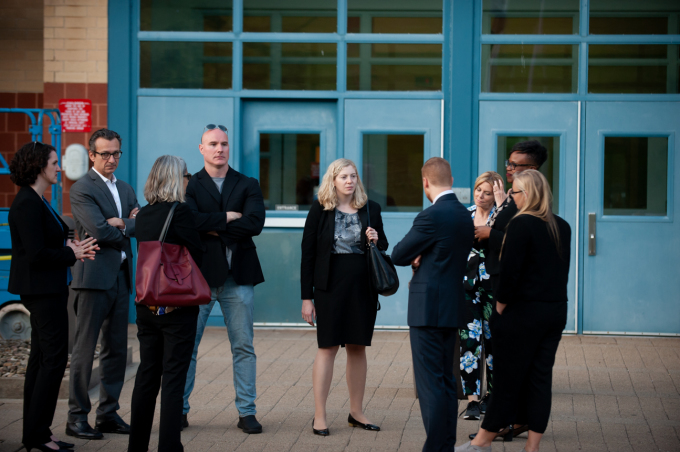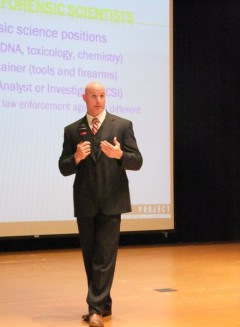Expertise born from experience
Craig M. Cooley has investigated and litigated criminal cases across the United States for nearly two decades.
Mr. Cooley has represented criminal defendants in the following states: Pennsylvania, North Carolina, Illinois, Tennessee, Oklahoma, Arkansas, Alambama, South Carolina, Nevada, Texas, and California.
Trial practice requires courtroom experience, oral advocacy, and extensive knowledge of the numerous criminal procedure rules and vast criminal law and procedure case law to ensure your rights are protected at each stage of the trial process. If defense counsel fails to file a certain pre-trial motion or fails to object to improper arguments or evidence at trial, these failures can be quite damaging not only at trial but during the post-trial and direct appeal process. Great trial attorneys identify and preserve all trial errors so, if the client is ultimately convicted, the client can easily present these trial errors to the appellate court on appeal.
Post- Trial and appellate litigation in Pennsylvania requires knowledge of appellate procedure, substantive criminal law, and criminal procedure, including the Pennsylvania Rules of Criminal Procedure Pennsylvnaia Rules of Appellate Procedure, Federal Rules of Criminal Procedure, and the Federal Rules of Appellate Procedure. It also requires excellent writing, research, and oral argument skills. An appellate attorney must be able to review the trial record and identify potential legal errors that rendered the defendant's trial or sentence unfair. He or she must also write a pursuasive and comprehensive appellate brief that puts the defendant's legal issues in the best light.
Post-conviction litigation requires the same skills, plus expertise with Pennsylvania's Post-Conviction Relief Act (PCRA), the Rules Governing Federal Habeas Cases, Anti-Terrorism Effective Death Penalty Act (AEDPA), including Section 2254 (state court prisoners) and Section 2255 (federal court prisoners). It also requires investigative skills because during post-conviction litigation defendants can develop and introduce "new evidence" to the trial court to establish that one of his or her state or federal constitutional or statutory rights were violated. For instance, a defendant can develop and introduce "new evidence" to prove his trial attoreny was ineffective and that his inadequate representation rendered his trial or guilty plea fundamentally unfair. Likewise, a defendant can develop and introduce "new evidence" to prove that the prosecutor or police failed to disclose evidence that would've changed the outcome of the defendant's guilty plea, trial, and/or sentence.
Waiting with John Kunco's other Innocence Project Attorneys outside Westmoreland County Prison for John's release
Mr. Cooley possesses all of these skills because he's litigated before the following trial and appelalte courts across Pennyslvania and the United States
- State appellate courts: Pennsylvania Supreme Court, Pennsylvania Superior Court, Tennessee Supreme Court, Tennessee Court of Criminal Appeals, North Carolina Supreme Court, North Carolina Court of Appeals, North Carolina Innocence Inquiry Commission, Illinois Court of Appeals
- Federal appellate courts: Third Circuit Court of Appeals, Fourth Circuit Court of Appeals, Fifth Circuit Court of Appeals
Mr. Cooley has practiced in the following trial courts:
- State courts: Allegheny County (PA), Philadelphia County (PA), Lehigh County (PA), Chester County (PA), Monroe County (PA), Fayette County (PA), Clearfield County (PA), York County (PA), Westmoreland County (PA), Montgomery County (PA), Northhampton County (PA), Cambria County (PA), Jefferson County (PA), Anderson County (TN), Shelby County (TN), Davidson County (TN), Hardeman County (TN), Marshall County (TN), Tulsa County (OK), Oklahoma City County (OK), Columbia County (AR), York County (SC), Cook County (IL), Sagamon County (IL), Jackson County (IL), Los Angeles County (CA), Guilford County (NC), Durham County (NC)
- Federal courts: District Court of NV, Western District of PA, Eastern District of PA, District of MA, Middle District of AL, Western District of TX
Cooley Law Office
Pittsburgh Office
1308 Plumdale Court
Pittsburgh, PA 15239
412-607-9346 (cell)
919-287-2531 (fax)
CREDIT CARD PAYMENTS ACCEPTED






